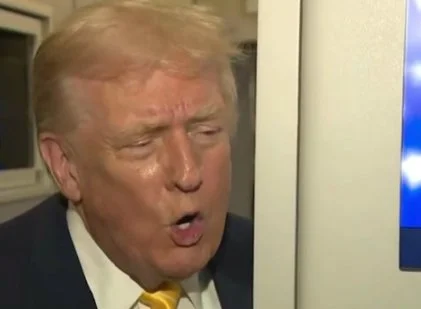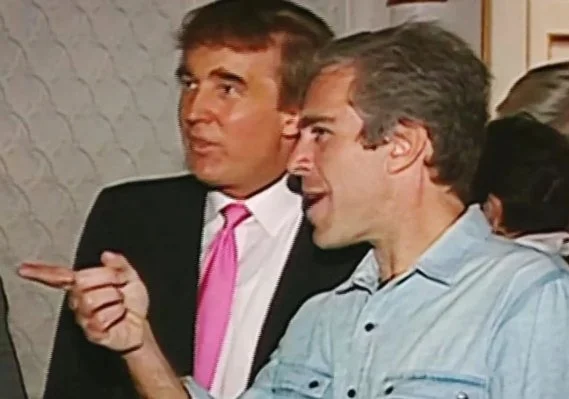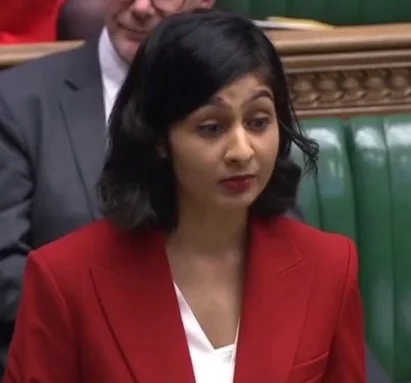Why Trump May Invade Venezuela
Political decisions are not made in a vacuum. They emerge from the psychology of those who wield power, from their fears, insecurities, and ambitions. To understand why Donald Trump may be steering the United States toward war with Venezuela, it is not enough to examine troop movements or legal justifications. One must understand Trump himself—his worldview, his impulses, and the psychological needs that drive his actions. The possibility of invasion does not merely arise from geopolitical strategy; it grows out of the psyche of a man whose political life has been defined by grievance, dominance, and a relentless need for spectacle.
The Psychology of Domination
Donald Trump has always framed politics as a zero-sum contest of strength. In his language, the world is divided between winners and losers, predators and prey. This binary worldview leaves little room for diplomacy, compromise, or legality. From his earliest business dealings to his presidency, Trump’s pattern has been consistent: to project power through aggression, to confuse subordinates with unpredictability, and to equate cruelty with strength. Political psychologists describe this as a “dominance orientation,” a mindset in which social order is sustained by coercion rather than cooperation.
In the Venezuelan context, Trump’s dominance orientation finds a natural outlet. Nicolás Maduro, an authoritarian socialist leader presiding over a collapsing economy, provides an ideal adversary for Trump’s narrative. By casting Maduro as both criminal and weak, Trump creates an external foil that legitimizes his own power at home. The buildup of U.S. naval forces and the rhetoric of “narco-terrorism” serve not only military goals but also psychological ones: they reaffirm Trump’s self-concept as the “strong man” defending America against chaos.
This psychology is not new. Authoritarian leaders throughout history—from Mussolini to Putin—have demonstrated similar patterns of external aggression born from internal insecurity. What distinguishes Trump is his performative approach. He does not seek war for ideological conquest, but for symbolic mastery—to reassert dominance over reality itself, to bend public perception to his will. For Trump, power is not merely the capacity to act; it is the power to define what is true.
The Narcissistic Logic of Crisis
Clinical analyses of Trump’s behavior often reference traits associated with narcissistic personality organization: grandiosity, lack of empathy, and a fragile self-esteem dependent on external validation. When faced with humiliation or loss of control, narcissistic personalities often engage in “narcissistic rage”—a defensive aggression aimed at restoring their sense of superiority. In political terms, this means Trump’s impulses toward escalation are most dangerous when he feels cornered.
By late 2025, Trump faces multiple sources of pressure: legal challenges, political opposition in Congress, and growing scrutiny over the legality of his military strikes. His public comments about “killing drug smugglers” and joking about suspending elections reveal not just authoritarian bravado, but also deep psychological defensiveness. Each criticism, each challenge to his legitimacy, threatens the fragile self-image he must maintain. Historically, Trump has responded to such threats by creating larger spectacles—deflecting domestic crises through dramatic displays of power.
War, or even the perception of impending war, provides the ultimate stage. It transforms criticism into treason, dissent into weakness. In psychological terms, conflict externalizes internal anxiety. When Trump feels his authority slipping, he seeks a crisis he can dominate. Venezuela provides that opportunity. The country is weak, isolated, and unpopular in the U.S. political imagination. It is a target that offers the illusion of victory without the moral complexity of a great-power conflict. For Trump, it is not just a foreign nation; it is a mirror in which he can see himself as savior rather than scandal.
Projection and the Enemy Within
Another key dynamic at play is projection—the process by which individuals attribute their own undesirable traits to others. Trump’s rhetoric toward Venezuela, filled with accusations of corruption, illegitimacy, and lawlessness, mirrors the criticisms most often directed at him. He calls Maduro a dictator while joking about ending elections. He condemns Venezuela’s criminal networks while running a White House that has normalized nepotism and legal evasion. By casting Maduro as the embodiment of everything evil and chaotic, Trump externalizes his own internal conflicts.
Projection serves a political function as well as a psychological one. It allows Trump to mobilize his base around a simplified moral drama. By framing the Venezuelan crisis as a war between civilization and criminality, he binds his followers to his leadership through fear and moral certainty. The complexity of Latin American politics disappears; what remains is an emotional narrative of purity versus contamination. In this story, only Trump can protect America from the encroaching threat—a story that not only flatters his ego but also immunizes him against criticism.
The Authoritarian Personality and the Need for Control
Political psychologists have long studied the authoritarian personality—a structure of beliefs characterized by submission to perceived authority, aggression toward out-groups, and a desire for order in a chaotic world. Trump embodies a paradoxical version of this type: he demands absolute loyalty from others while recognizing no authority above himself. His followers project onto him the certainty they crave in uncertain times, while he reciprocates by performing dominance on their behalf.
The potential invasion of Venezuela must be seen within this psychology of control. Trump’s worldview cannot tolerate ambiguity or limits. International law, congressional oversight, or even factual truth become obstacles to be crushed. When legal constraints frustrate his will, he redefines the terms of legality. When reality contradicts his claims, he brands reality itself as fake. This totalizing impulse makes the idea of war appealing. In war, ambiguity disappears. There is loyalty and treason, victory and defeat, friend and enemy. For a mind like Trump’s—restless, insecure, allergic to nuance—war is not horror but clarity.
Machiavellian Cynicism and the Pursuit of Survival
Not all of Trump’s motives are unconscious. His pattern of behavior also reveals a distinctly Machiavellian rationality—a pragmatic willingness to use manipulation, fear, and deception to maintain power. As his political capital wanes and investigations multiply, Trump’s calculus shifts toward survival. Historically, leaders facing legal peril or electoral defeat have resorted to conflict to rally public support. The “rally around the flag” effect is one of the most robust findings in political psychology: national crises temporarily boost approval for incumbents. Trump’s understanding of this dynamic may not be academic, but it is instinctive. He knows that a televised confrontation with Venezuela can recast him as commander-in-chief rather than defendant.
Furthermore, Trump’s psychological reliance on the “deal” as the central metaphor of existence may incline him to see war itself as negotiable spectacle. His instinct is transactional: apply pressure, create chaos, and then extract concessions. He has repeatedly framed military escalation as a bargaining chip, as when he threatened North Korea and Iran before later seeking talks. In this sense, an invasion or limited strike against Venezuela may not be an end in itself, but a psychological and strategic performance designed to force recognition and respect.
The Emotional Theater of Power
Trump’s political psychology operates through emotion rather than ideology. He governs through affect—through anger, humiliation, and triumph. His rallies function as emotional rituals that bind leader and followers in shared grievance. A war, or even a prolonged standoff, extends that theater onto the global stage. The images of aircraft carriers, missiles, and presidential bravado feed his need for adoration while silencing critics who might otherwise question his competence. War allows Trump to recast chaos as control, failure as strength.
In this emotional theater, Venezuela plays a symbolic role. The country embodies everything Trump claims to oppose: socialism, disorder, and weakness. Yet it also offers something he needs: an enemy that cannot humiliate him militarily. Unlike Iran or China, Venezuela poses little real threat. It is a stage on which Trump can play the hero without fear of defeat. The psychology of spectacle demands a villain, but a manageable one. In that sense, the potential invasion is not about oil, ideology, or regional strategy—it is about narrative control.
The Fragility Beneath the Fury
Despite his public bravado, Trump’s psychology is marked by fragility. His need for constant affirmation betrays a deep insecurity about legitimacy. This insecurity manifests as hostility toward any institution that limits him: the press, the courts, Congress. Psychologically, such hostility reflects a defensive authoritarianism, in which external checks are experienced as personal humiliation. The more the system restrains him, the more he seeks to destroy it. A military conflict offers temporary relief from this internal tension. In war, there are no procedural delays, no oversight hearings—only command and obedience. It is the purest form of psychological gratification for someone who experiences constraint as injury.
The Dangerous Allure of Emergency
Underlying all these dynamics is a more chilling possibility: Trump may view war as a path to permanent emergency. His joking suggestion that elections might be canceled during wartime reveals a dangerous conflation of personal survival with national security. In his mind, the state and the self are intertwined; to lose power is to face annihilation. The authoritarian psyche cannot imagine legitimate succession, only betrayal. Thus, the logic of invasion may not be strategic but existential. Trump wages external wars to prevent internal defeat. For him, victory abroad becomes a proxy for immortality at home.
Simply Put
Why might Trump invade Venezuela? Because the act satisfies every layer of his psychological need: domination, projection, survival, and spectacle. It transforms insecurity into aggression, legal vulnerability into martial authority, and domestic weakness into global theater. The invasion, if it comes, will not be driven primarily by oil or ideology, but by the emotional economy of a man who equates chaos with vitality and power with existence itself.
Understanding this is not an exercise in armchair diagnosis; it is a warning. When the personal insecurities of a leader merge with the coercive power of a state, psychology becomes destiny. Trump’s potential war with Venezuela is less about hemispheric strategy than about the collapse of boundaries—between fact and fiction, self and nation, law and will. The threat lies not only in the missiles offshore, but in the mind that may one day order them to fire.
Key Facts: The U.S.–Venezuela Military Escalation (Late 2025)
Massive U.S. military buildup:
In late 2025, the United States deployed its largest military force in Latin America in decades, including the USS Gerald R. Ford carrier strike group, submarines, destroyers, amphibious ships, and multiple support vessels operating near Venezuelan waters.Thousands of Marines on alert:
Around 2,200 U.S. Marines, trained for amphibious assault, are embarked on ships such as the USS Iwo Jima amphibious ready group. F-35 fighter jets are stationed in Puerto Rico for rapid deployment.Tomahawk cruise missiles in theater:
The number of Tomahawks and other precision weapons in the Caribbean has reached wartime levels, indicating preparations for possible offensive operations rather than routine patrols.Official rationale: counter-narcotics operations.
The Trump administration describes the buildup as part of an expanded campaign against drug trafficking and “narco-terrorism” allegedly linked to Venezuela.Deadly U.S. strikes on small boats:
Since September 2025, the U.S. military has conducted at least a dozen lethal strikes on vessels accused of smuggling drugs, killing between 40 and 60 people. Identities of the dead and evidence of narcotics have not been made public.Legal justification under terrorism law:
Trump claims authority under the 2001 Authorization for Use of Military Force, originally passed to target terrorist groups, arguing that drug cartels qualify as “unlawful combatants.”Accusations of illegality:
Legal experts and human rights officials warn the boat strikes may constitute extrajudicial killings and violate both international law and the U.S. Constitution. Members of Congress have criticized the lack of evidence and absence of congressional authorization.Trump’s rhetoric turns overtly martial:
Trump has said “we’re going to kill people bringing drugs into our country” and declared that he does not need a formal declaration of war. He has also invoked wartime powers and joked that “no more elections” might occur if the U.S. were at war in 2028.Congressional backlash:
Bipartisan senators, including Kaine, Schiff, and Paul, have demanded oversight of the president’s actions, warning that the administration is operating without transparency or constitutional restraint.International response:
Venezuela has condemned the U.S. buildup as aggression. Russia, China, and Iran have signaled support for Caracas, with Moscow indicating readiness to provide defensive aid.Parallels to “gunboat diplomacy” and Ukraine 2022:
Analysts compare the U.S. posture to earlier power projections in Latin America and to Russia’s troop staging before its 2022 invasion of Ukraine, noting similar patterns of buildup and justification.
Sources
These are the U.S. ships and aircraft massing off Venezuela - The Washington Post
US strike on alleged drug boat off Venezuela kills six, Trump says | Reuters
What military force has the US positioned off Venezuela’s coast? | Interactive News | Al Jazeera
Trump Has Sufficient Firepower to Launch Immediate Strikes on Venezuela
Analysts say the U.S. military buildup near Venezuela echoes gunboat diplomacy era | KOSU
Venezuela seeks Russian help amid fears over U.S. intervention - The Washington Post
Latest US strikes on alleged drug-running boats kill 14 in eastern Pacific | AP News
US strike on alleged drug boat off Venezuela kills six, Trump says | Reuters
Latest US strikes on alleged drug-running boats kill 14 in eastern Pacific | AP News
What military force has the US positioned off Venezuela’s coast? | Interactive News | Al Jazeera
[2025-10-17] Senators will force a vote to prevent war on Venezuela...
Trump Jokes with Zelenskyy That a U.S. War in 2028 Would Mean 'No More Elections'








